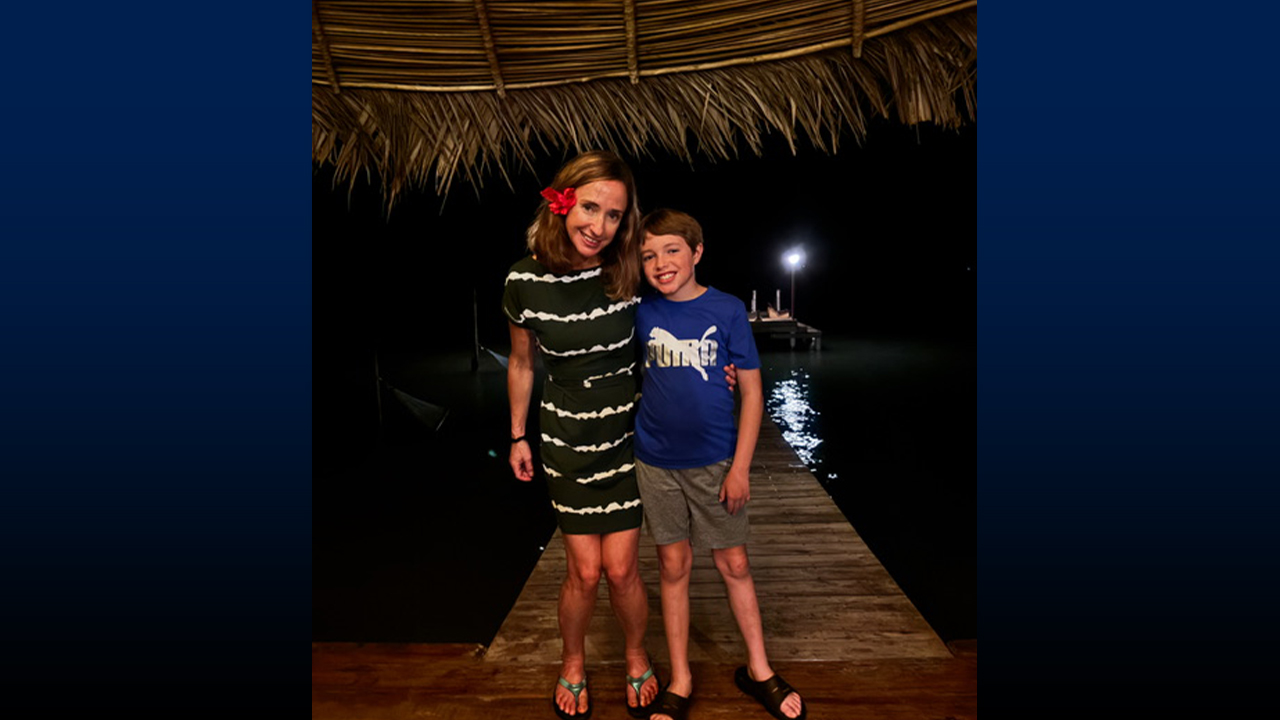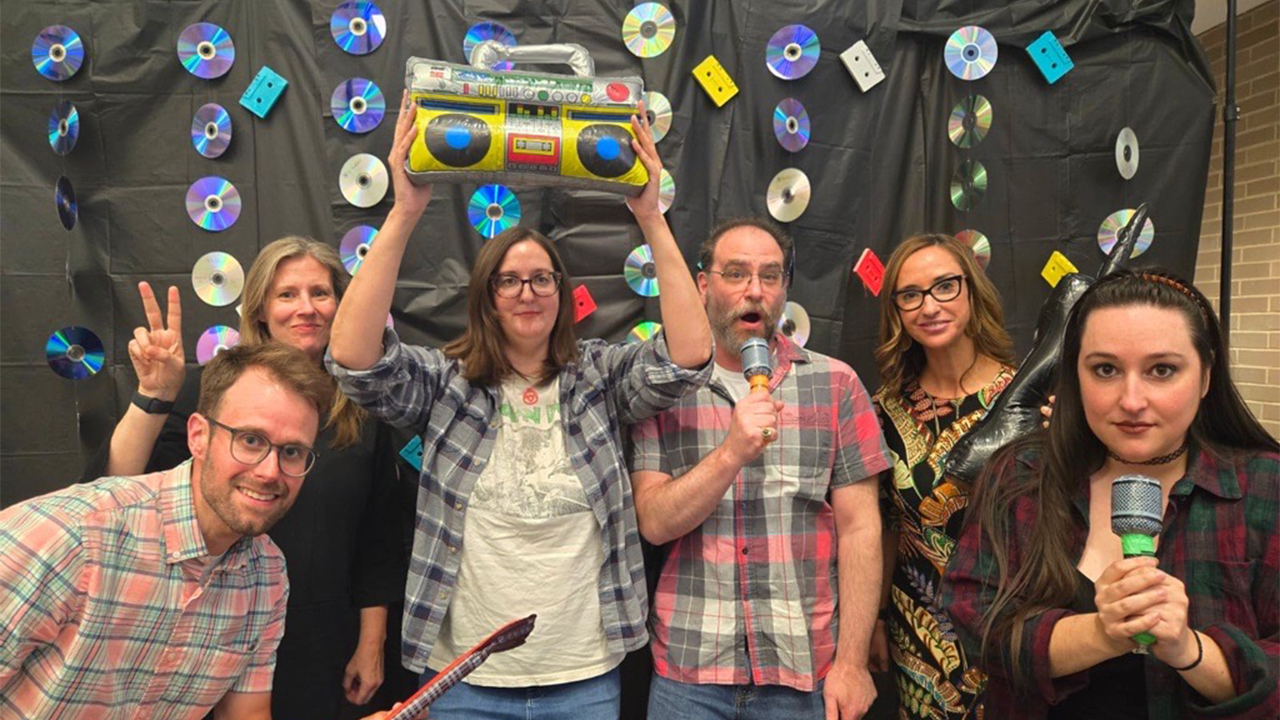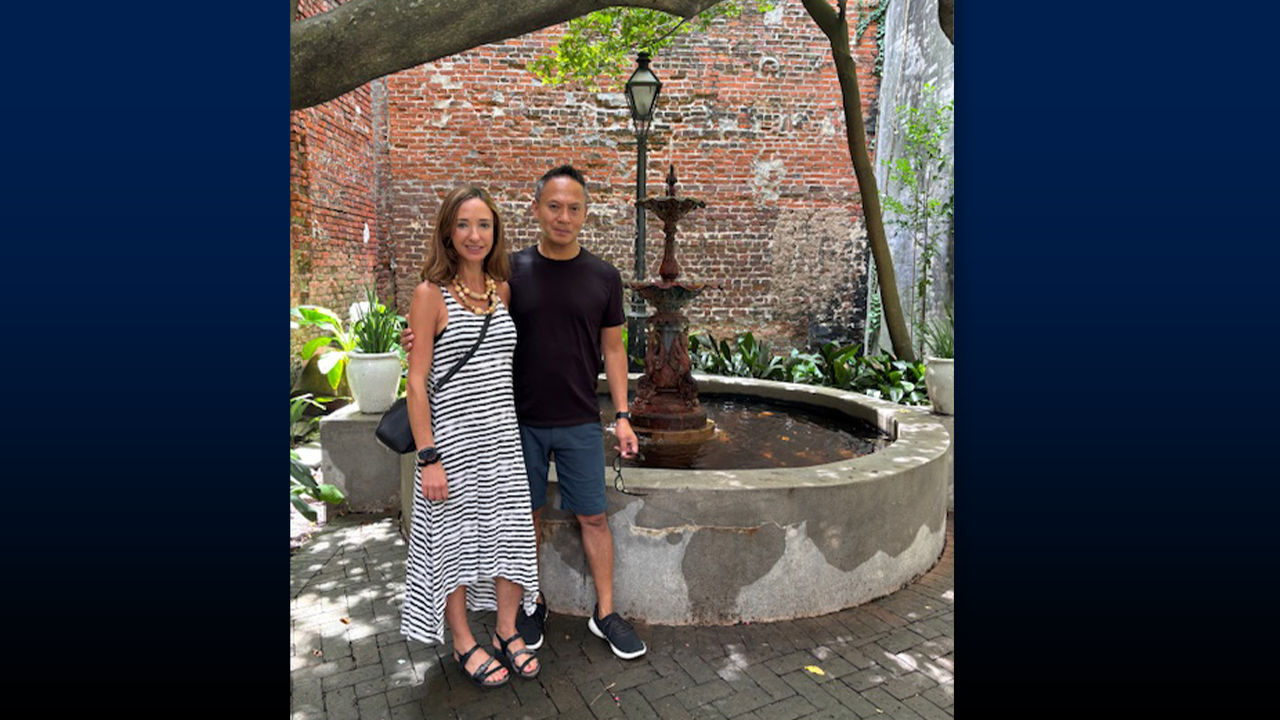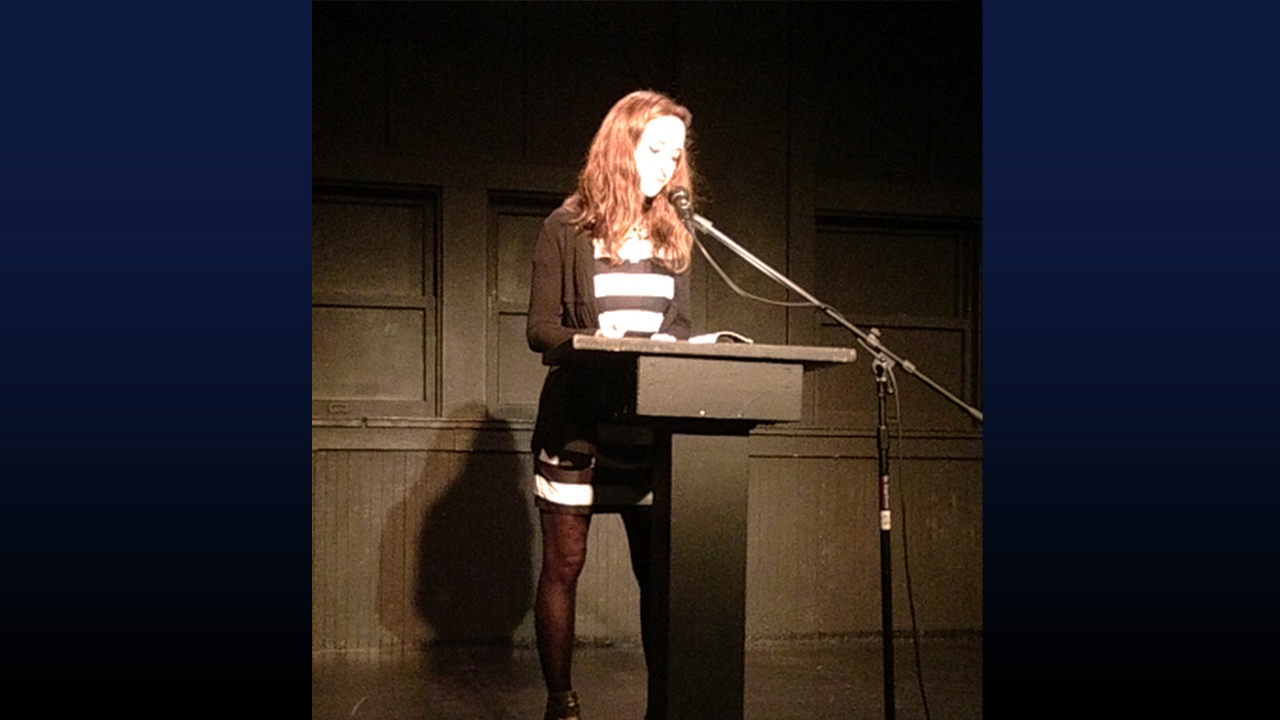



At convocation each year, the University of Wisconsin-Platteville honors faculty and staff with UW-Platteville and Universities of Wisconsin awards, recognizing their excellence and dedication. In this year’s articles about the recipients, we are spotlighting their journeys, passions and the paths that brought them here.
Dr. Kara Candito, a professor of English in the Department of Humanities, was selected to receive the Nimocks Family Faculty Appreciation Award. The award recognizes outstanding faculty at UW-Platteville who teach effectively, teach the value of diversity, teach the ability to argue sensitive issues with competence and civility, create opportunities for students to engage in high-impact practices and teach the importance of a liberal arts education.
Q: For those who don’t know, what do you do within the Department of Humanities and what does it involve?
I am a professor of English in the Department of Humanities, with a specialization in creative writing and a secondary emphasis in ethnic American literature. I teach Poetry Writing, Introduction to Creative Writing, Advanced Manuscript Workshop (the capstone course for the creative writing minor) and Literary Magazines (the course that produces the annual issue of Spirit Lake Review, our campus literary journal). I also teach Introduction to Multiethnic American Literature, African American Literature and College Writing I and II. Finally, I serve as the faculty advisor for Spirit Lake Review.
Q: How long have you held this position?
I started working at UW-Platteville in the fall of 2010, as an assistant professor of English, so almost 15 years now.
Q: Where were you born and raised?
I was born and raised in the suburbs of Boston, Massachusetts, in an area known as South Shore, just a few miles from the Atlantic Ocean.
Q: How did your upbringing impact your writing and poetry style?
I think my proximity to the ocean and to maritime culture and history of Massachusetts fostered a strong appreciation for stories and letters from an early age. For instance, I remember learning that the high railed rooftop platforms atop old houses overlooking the sea were called widow’s watches because the wives of mariners often stood atop them awaiting their husbands’ return from sea. Letters between sailors and their families were often displayed common in local museums as well. Inspired by these artifacts, I came to understand the written word as a vehicle for transmitting emotion and bridging the gaps between here and there, and present, past and future. Also, I was home from school a lot as a child with asthma related illnesses, and my paternal grandfather, an amazing storyteller, was often my caregiver. Finally, I developed a great appreciation for the transformative power of novels during those sick days.
Q: What is your dream vacation?
The short answer is anywhere warm and sunny, but my dream vacation would have to be Granada, Spain, and other parts of Andalusia, as a means of following the historical footprints of my favorite poet, Federico García Lorca.
Q: Besides writing, what do you like to do in your spare time?
Yoga, gardening, reading, going to art museums, spending time with my 8-year-old-son and traveling to new places.
Q: Any words of wisdom for someone considering a career as a journalist/writer?
I would advise writers to develop an openness to revision and critique, and a faith in the integrity of their own voices and projects. I would also suggest that they seek out and cultivate writing communities, at the local, regional and national levels. Writers and artists need one another because our culture tends to overlook the importance of literature art, though the vast majority of people love music, film and even books. Writing communities have been central to my development as a poet, teacher and person, because they are spaces that centralize the project of exploring and enacting what it means to be human.
Candito will be recognized at the university’s annual faculty and staff convocation this month.